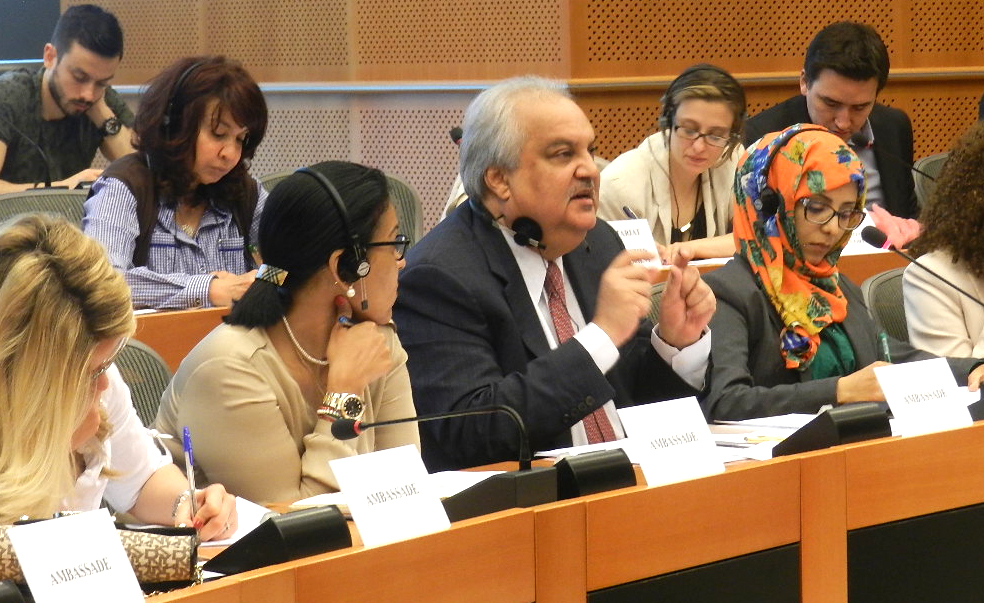LOC11:16
08:16 GMT
 ambassador Dharar Abdul Razzak Razzooqi speaking in the EP on HUMAN RIGHTS DEBATE
ambassador Dharar Abdul Razzak Razzooqi speaking in the EP on HUMAN RIGHTS DEBATE
BRUSSELS, June 26 (KUNA) -- Kuwait's ambassador the EU, Belgium and Luxembourg Dharar Abdul Razzak Razzooqi has strongly defended the human rights record of Kuwait during a debate in the European Parliament.
"We respect human rights and the fundamentals of human rights. We are responsible governments. We have obligations in terms of international law, human rights laws and humanitarian laws," he stressed.
The Kuwaiti ambassador was speaking at a meeting of the European Parliament's Delegation for relations with the Arab Peninsula on the topic of "the human rights situation in the Gulf countries with a particular focus on the situation of migrant workers," held late on Thursday.
Razzooqi noted he was Kuwait's ambassador in Geneva for 18 years and before that he served in New York and India, thus he was well aware of human rights issues in the world.
"We respect each and every human being. It is our responsibility and we will do that," he said, clarifying that the Gulf region has no migrant workers, but contractual labourers.
The Kuwaiti envoy proclaimed that foreign workers in the Gulf countries transferred USD 75 billion between 2010-2014 to their home countries, thus contributing in the development of their own countries and economies.
He informed the EP that Kuwait has people from 199 nationalities working in the country. Kuwait has a population of around four million, out of which Kuwaitis are only 1.3 million.
"We face enormous challenges. One needs to understand the global picture of human rights which is a process," he added.
On her part, Alessia Maria Mosca, Vice-Chair of the Delegation, said the issue of migrant workers and issue of "Kefala" (or sponsorship system) is receiving great attention and that several Gulf countries are taking steps to reform their labour system.
She noted that Saudi Arabia will hold local elections in December in which women can participate for the first time.
"There are many other developments and reforms going on in the GCC countries which I consider as positive and it is important to take note of them," said Mosca.
Rothna Begum, a researcher in Amnesty International, told the meeting that "we have seen Kuwait passed two laws on Wednesday on domestic workers. We have yet to see what they say but it looks like it is a positive measure and with this in place we could be seeing more labour protection laws coming from other GCC countries."
"Kuwait is among the few countries which has government shelters for domestic workers," she added.
British MEP Afzal Khan said "it is very encouraging to hear the good news from Kuwait about the legislation of the workers' rights. This shows that they have a thriving democratic process which is going on and they make some good decisions to improve the quality of life of the people."
Two representatives from Amnesty International and one from Human Rights Watch participated in the meeting and called for the abolition of the Kefala system. (end)
nk.rk